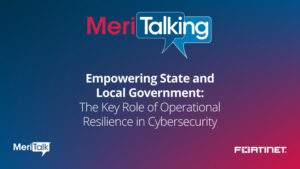North Carolina Central University School of Business (NCCU) and Halifax County Community College (HCCC) have entered a new partnership with the goal of enhancing the talent pipeline for the state’s cybersecurity industry.
Cyberattacks on the Federal government and industry tend to dominate headlines and the public discourse. Yet state and local governments are increasingly in the cyber crosshairs as well: 97 percent of local government IT executives listed cybersecurity as a key priority for the current fiscal year, a recent survey found.
Rep. August Pfluger, R-Texas, introduced legislation this week that would establish a Digital Economy and Cybersecurity Board of Advisers at the National Telecommunications and Information Administration (NTIA). The bill comes as lawmakers are working to reauthorize the NTIA – a Commerce Department component – for the first time since 1992.
Louisiana State University Online and Continuing Education (LSU OCE) is launching a new training partnership intended to close talent gaps in the state’s tech industry.
The State University of New York at Albany (UAlbany) has stood up two new labs to examine the future of open-source intelligence (OSINT) and cybersecurity vulnerabilities in everyday smart devices.
It’s time for businesses to start people-proofing their systems. According to Verizon’s 16th Annual Data Breach Investigations Report released today, 74 percent of all breaches include the human element through error, privilege misuse, social engineering, or use of stolen credentials.
Ninety-seven percent of local government IT executives listed cybersecurity as a key priority for the current fiscal year (FY), according to the tenth annual State of City and County IT National Survey administered by CompTIA’s Public Technology Institute (PTI).
Following a cyberattack detected on April 6, Minnesota’s Rochester Public Schools (RPS) has announced that it does not believe that any student data was accessed. Additionally, the school system said that it has no evidence that the affected data pertaining to RPS employees has been used for financial fraud or identity theft. Since the attack was detected, the school system has been working with third-party forensics experts as part of an ongoing investigation.
National and international cybersecurity officials last week released recommendations and resources to help smart cities balance efficiency and innovation with cybersecurity, privacy protections, and national security.
New Mexico Gov. Michelle Lujan Grisham earlier this month signed into law the Cybersecurity Act, which establishes a state government Cybersecurity Office that will oversee cybersecurity and information security related functions across New Mexico.










